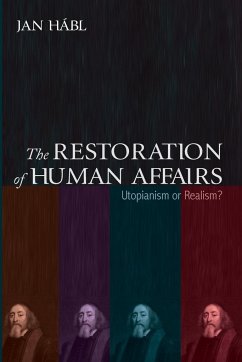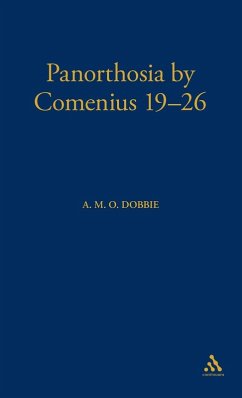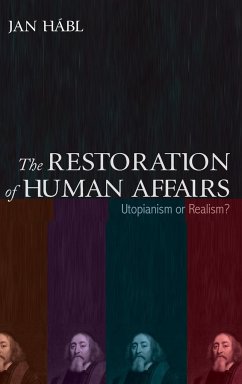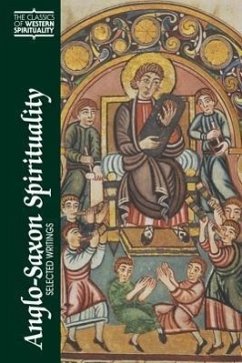
John Comenius
The Labyrinth of the World and the Paradise of the Heart
Übersetzer: Louthan, Howard; Sterk, Andrea
Versandkostenfrei!
Versandfertig in über 4 Wochen
18,99 €
inkl. MwSt.

PAYBACK Punkte
9 °P sammeln!
The study of Protestant spirituality in the early modern period has generally focused on Puritans and Pietists. The tradition of the Slavic Reformation that culminated with John Amos Comenius (1592-1670) has been largely ignored. This volume seeks to redress this imbalance by introducing Comenius's neglected masterpiece, The Labyrinth of the World, to a broader audience. Though better known as the father of modern education, Comenius was a pastor and spiritual leader of the Bohemian Brethren (Unitas Fratrum), a Czech Protestant group inspired by the Hussite movement of the fifteenth century. T...
The study of Protestant spirituality in the early modern period has generally focused on Puritans and Pietists. The tradition of the Slavic Reformation that culminated with John Amos Comenius (1592-1670) has been largely ignored. This volume seeks to redress this imbalance by introducing Comenius's neglected masterpiece, The Labyrinth of the World, to a broader audience. Though better known as the father of modern education, Comenius was a pastor and spiritual leader of the Bohemian Brethren (Unitas Fratrum), a Czech Protestant group inspired by the Hussite movement of the fifteenth century. The Labyrinth, an allegory of the spiritual journey in the style of Bunyan's Pilgrim's Progress, represents the culmination of his literary accomplishments. The work was written against the backdrop of the calamitous Thirty Years' War and Comenius's profound personal sufferings. His satirical castigation of the world's false ambitions and values is paralleled by a deep yearning for understanding and experience of life with God. The work comprises two parts. The first introduces a pilgrim in search of a profession. Escorted by a series of guides who lead him through the maze of life's occupations, he visits tradesmen, scholars, clergy, rulers and various other classes of society. Disillusioned by the petty rivalries and deception that mark every vocation he explores, the pilgrim ultimately despairs of the vanity and emptiness of human existence. In the second part of the text the pilgrim turns inward, where he finds "the paradise of the heart". After encountering Christ, he is led on a spiritual journey among those who have found the true meaning of life in relationship with God.












